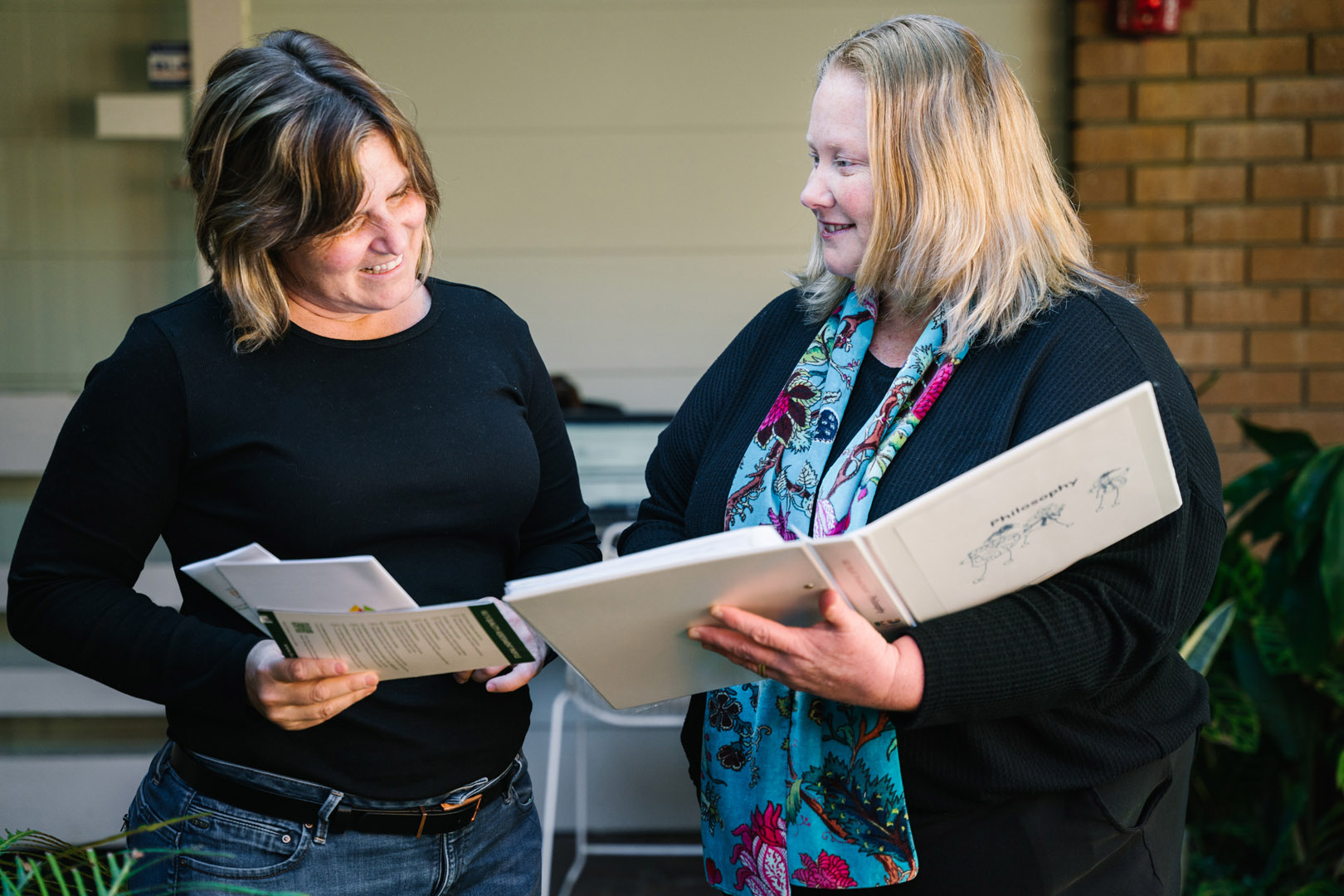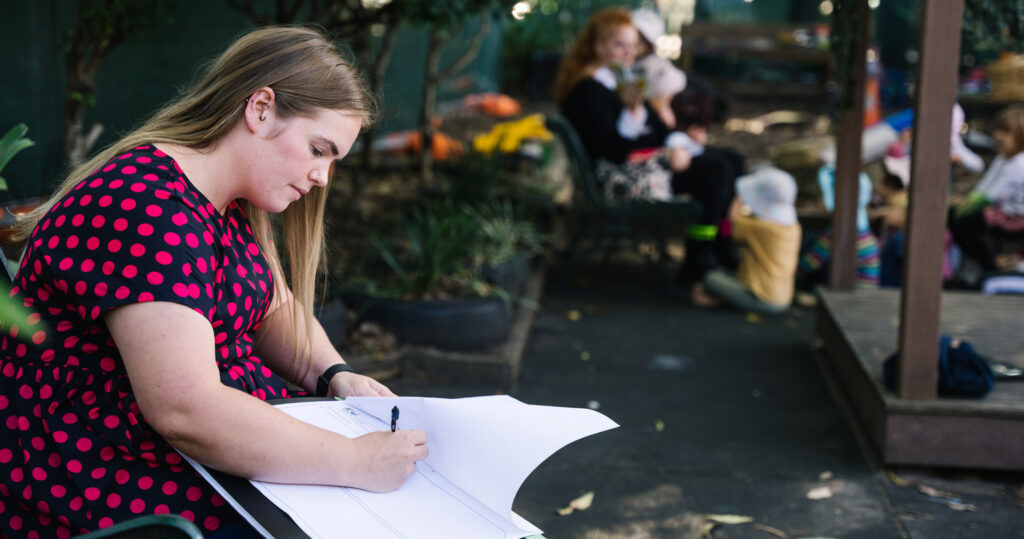
The What, Why and How of Philosophy
World Philosophy Day is celebrated every third Thursday of November, and is a timely opportunity to examine service statements of philosophy.
By Jan Faulkner, KU Learning and Development
By celebrating World Philosophy Day each year, UNESCO (United Nations Educational, Scientific and Cultural Organization) emphasises the enduring value of philosophy for the development of human thought. They state that by awakening minds to the exercise of thinking and the reasoned confrontation of opinions, philosophy helps to build a more tolerant, more respectful society.
World Philosophy Day is a timely opportunity to examine our service statements of philosophy. This article examines what a statement of philosophy is, why we need one and how we ensure it is actioned.
What is a statement of philosophy?
Element 7.1.1 of the National Quality Standard is ‘Service philosophy and purpose: A statement of philosophy guides all aspects of the service’s operations’. But what is a statement of philosophy?
The Cambridge Dictionary describes ‘philosophy’ as:
The use of reason in understanding such things as the nature of the real world and existence, the use and limits of knowledge, and the principles of moral judgment. A philosophy is also the beliefs you have about how you should behave in particular situations in life.
The above definition, along with UNESCO’s assertion that ‘philosophy brings about an exercise in thinking and moral deliberation’, signals to us that philosophy has a major role to play in the decisions we make about how we live.
Therefore, our early childhood statements of philosophy are a guiding light as to how we live and exist alongside children in our services. As such they set out the explicit underlying values and principles that guide the practices and behaviour of all staff in the service. They provide the reader with a justification for what teaching and learning looks like in our early childhood programs.
Why is having a statement of philosophy important?
The Guide to the National Quality Standard (p.268) notes that a statement of philosophy serves three purposes:
- Underpinning the decisions, policies, and daily practices of the service.
- Reflecting a shared understanding of the role of the service among staff, children, families and the community.
- Guiding educators’ pedagogy, planning and practice when delivering the educational program.
But why do we need a philosophy statement that is unique to each service? After all, everyone who works with very young children aims to provide them with exceptional care and education that nurtures their learning and wellbeing, so wouldn’t every service’s philosophy statement be the same?
The answer is ‘no’ because the way in which care and education is achieved will differ. Services must respond to and prioritise the unique needs of the community in which they operate and of the families that access the service.
For example, it could be that your service is in a community where there are families who are isolated or living in high rise developments. Your philosophy statement will recognise and identify your point of difference and what you value about the uniqueness of your families and the surrounding community. It becomes your commitment to children and families and the inspiration for your work. It is the cultural foundation of the service and highlights an identity that distinguishes your service from any other.

How do you arrive at your statement of philosophy?
Arriving at your statement of philosophy is a lengthy process. Philosophy by its very nature celebrates diversity of thought and opinion. Besides determining the priorities for your community, the team must also decide between competing discourses and ideologies. It means making decisions about what to include and what not to include. It means negotiating and considering the personal values and beliefs of everyone connected to your service.
The following steps might be useful.
Step 1: Ask questions and listen:
The first step must not be rushed. Take time to determine what is most important to everyone connected to your service. Seek out the values and opinions of staff, families, children, and community members. Ask questions and listen to what they value and understand as the significance of early childhood programs in their community.
Here are some examples of questions that might elicit what is important to team members:
- What are you most proud of in our service’s work with children and families? Why is this important to you?
- What or who is the greatest inspiration and influence for your work with children and families? How does this guide your work? What is an example of how you see this in your daily work?
- Imagine the best kind of world to live in. What does it look, sound, and feel like?
- What kind of person do you want to be living in that world?
Involve children by observing and listening to what they are most drawn to, what they like, don’t like and how they respond to their environment. Discussions with older children could include questions such as:
- How do you know this is your preschool/kindy?
- How do the teachers help you to feel safe?
- What kind of place do you want to live in?
- What kind of person do you want to be as you grow older?
Step 2: Determine your values and priorities:
The second step is to clarify your values and priorities as a team.
- Using the information gathered in step 1, define the theme coming through in the responses and values that are similar and different. Agree on those that are a priority for your community and connect the service as a whole.
- Delve into the literature. What is the research telling you about children’s learning and wellbeing? Are your agreed on values supported by contemporary literature? What theories of learning and teaching do you align with?
- Ensure alignment with the underlying principles of the National Quality Framework including Belonging Being and Becoming: The Early Years Learning Framework for Australia V2.0
Step 3: Create a draft
Bring it all together and write a draft of the philosophy keeping in mind that it should:
- Be simple, concise, meaningful, achievable.
- Be something any staff member can hold in mind when they come to a decision-making crossroads.
- Encapsulate your ideology in a memorable way.
A sample extract from a statement might be:
Value – relationships and connections
Relationships of empathy and trust drive everything we do. We strive to support networks between families living in isolation and we serve as a connection between families and the local community.
A critical part of our role is to support children to have strong relationships with family, educators, peers, the environment, and the community. We believe in children being active participants in the community and the community having a strong presence in our centre. This is essential to children’s learning and wellbeing.

How do you action?
A statement of philosophy is only useful if it is a living document – widely known, actioned and open to discussion. Posting a copy in the staff room or on your organisation’s intranet isn’t nearly enough. It requires constant attention to ensure you are ‘walking the talk’.
Once your philosophy is set, it can create powerful energy. When you hear educators talking about how they do things ‘according to the philosophy’, you know that it has become a motivating force in day-to-day practice.
To support actioning the philosophy, as a team you can discuss questions such as:
- What does our philosophy statement mean to each of us?
- What are examples of how our practices align?
- How will it change and influence our curriculum decisions?
- How will we explain the philosophy to families, visitors, and students?
When there are changes to staff in the service, the philosophy is in danger of becoming a forgotten document. To keep it alive, it must be included in the induction process for new staff. Tell them the story behind how and why it was developed. Provide them with examples of what it looks like in action. Give them opportunities to ask questions, talk about their ideas and provide feedback.
Why do you review?
One element of a successful philosophy is its openness to change and sensitivity to the surrounding environment whether that be social, economic, political or technological. A review provides the opportunity to stop, reflect, and rethink ‘what we do and why we do it’. As such a review process will consider:
- Research that highlights different ways of thinking and doing.
- Changes to families and children attending.
- New team members who bring different insights.
- Shifts in the surrounding community.
- Changes to your understandings and insights.
Your statement of philosophy will lay the foundation for your day-to-day work. Make it clear, easy to communicate, a reference point for decision making, and a guiding light as you build relationships with children and families.
Want to know more?
To learn more about the what, why and how of philosophy and the full range of KU Learning and Development courses and events, click the below button.
